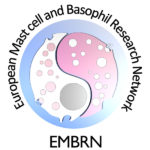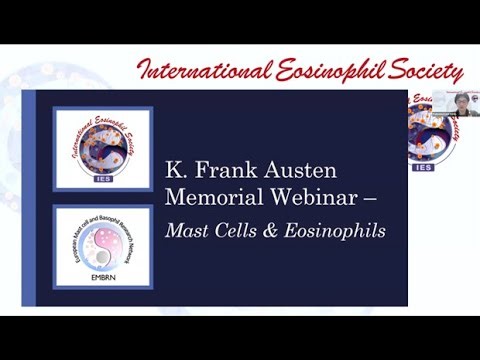List of publications by EMBRN members
Login in for more content
You can get access to this area and its contents if you are a member of EMBRN. A membership with EMBRN provides you with access to EMBRN experimental protocols, recent papers from the EMBRN lab and an updated member list.
To become a member with EMBRN, please fill out the membership form.
Autoreactive IgE: Pathogenic role and therapeutic target in autoimmune diseases
Summary Autoimmunity is the break of tolerance to self-antigens that leads to organ-specific or systemic diseases often characterized by the presence of pathogenic autoreactive antibodies (AAb) produced by plasmablast and/or plasma cells. AAb are prevalent in the general population and not systematically associated with clinical symptoms. In contrast, in some
Mast cell silencing: a novel therapeutic approach for urticarial and other mast cell-mediated diseases
Summary Chronic urticaria (CU) is a mast cell (MC)-dependent disease with limited therapeutic options. Current management strategies are directed at inhibiting IgE-mediated activation of MCs and antagonizing effects of released mediators. Due to the complexity and heterogeneity of CU and other MC diseases and mechanisms of MC activation—including multiple activating
2B4 – A potential target in Staphylococcus aureus associated allergic inflammation
Summary Staphylococcus aureus (SA) and its exotoxins activate eosinophils (Eos) and mast cells (MCs) via CD48, a GPI-anchored receptor belonging to the Signaling Lymphocytes Activation Molecules (SLAM) family. 2B4 (CD244), an immuno-regulatory transmembrane receptor also belonging to the SLAM family, is the high affinity ligand for CD48. 2B4 is expressed on
Directional mast cell degranulation of tumornecrosis factor into blood vessels primes neutrophilextravasation
Summary Tissue resident mast cells (MCs) rapidly initiate neutrophil infiltration upon inflammatory insult, yet the molecular mechanism is still unknown. Here, we demonstrated that MC-derived tumor necrosis factor (TNF) was crucial for neutrophil extravasation to sites of contact hypersensitivity-induced skin inflammation by promoting intraluminal crawling. MC-derived TNF directly primed circulating

